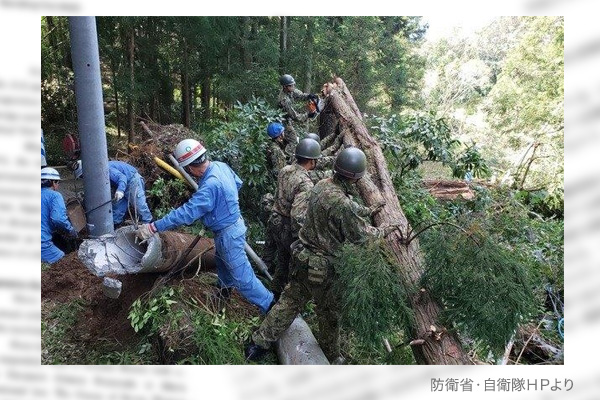In the Speaking Out #620 column, Tsutomu Toichi, senior adviser at the Institute of Energy Economics, Japan, took up drone and cruise missile attacks on oil facilities in Saudi Arabia on September 14 and warned that Japan could face an energy crisis if a full-blown military clash occurs involving Persian Gulf oil-producing countries. In addition, typhoons and heavy rains triggered large-scale blackouts at various locations in Japan. Amid prolonged blackouts in Chiba Prefecture in September, a rapid increase was seen in the number of local heatstroke patients, including some who died.
Frequent large-scale blackouts seen around the world
Just after the March 2011 Fukushima Daiichi Nuclear Power Station accident, the then government of Democratic Party of Japan conducted stress tests to check nuclear power plants’ safety and restarted nuclear plants with safety enhancement measures. However, the Nuclear Regulation Authority, created in 2012, forced all nuclear plants in Japan to be shut down under the so-called Tanaka proposal, a personal memo written by then NRA Chairman Shunichi Tanaka. Accordingly, Japan’s energy self-sufficiency rate plunged from 20% in 2010 to 6-plus %. Even at present after solar photovoltaics panels with capacity totaling 56 gigawatts exceeding that of 50 nuclear plants were installed, the rate is limited to only 8%. This is because solar PV panels fail to be any major stable power source with their average capacity factor limited to about 13%. Japan must accelerate the restart of nuclear power plants.
Nuclear phaseout and renewable energy expansion policies have brought about frequent large-scale blackouts in the world. Ukraine has been affected most seriously by blackouts. In the country that became independent five years after the 1986 Chernobyl nuclear power plant accident, all 15 nuclear plants were shut down, resulting in frequent large-scale blackouts that devastated key steelmaking and shipbuilding industries. Tens of thousands of people died of hunger or suicide after losing jobs and income. Relieving Ukraine of the economic collapse were nuclear power plants that restarted after safety enhancement measures.
Large-scale blackouts have occurred around the world in more recent years. This is because power generation reserve margins decline rapidly due to unstable renewable energy power generation. Large blackouts came in Taiwan in 2017, in South Korea in 2018, in Japan’s Hokkaido in September 2018, in winter Sweden in January this year, in New York in July and in London in September. Minor troubles or lightning strikes lead to transformer fires or the withdrawal of solar PV and wind power plants without storage capacity from the transmission system, triggering large-scale blackouts.
Prevent any chaos during Tokyo Olympics
Japan’s nuclear power plant safety review has been stalled in most cases even eight years after the Great East Japan Earthquake. If Middle East conflicts escalate to disrupt oil and natural gas supply from the region, Japan’s economy will be greatly affected. Although electric power companies have made additional natural gas orders in Southeast Asia, oil supply for power generation, industrial production and transportation sectors is expected to face serious shortages. The 2020 Tokyo Olympics are set to come in extreme heat. If power supply stops then, we may see a huge chaos.
In order to prevent any energy crisis from affecting citizens’ lives and assets, conserve the global environment and ensure energy security, the NRA must switch from its geology-based nuclear power plant safety review to the risk-based European and American style restriction. Japan should learn lessons from Ukraine.
Tadashi Narabayashi is a specially appointed professor at the Tokyo Institute of Technology and a director at the Japan Institute for National Fundamentals.


